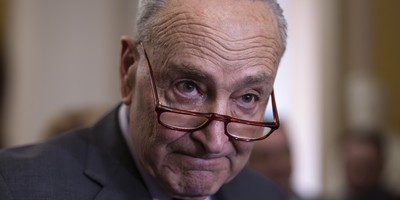Rarely has so much hectoring produced so little.
After all the magazine covers, celebrity sermonizing and U.N.-certified-expert hand-wringing, the fight against global warming got a real-world test in the U.S. Senate a few weeks ago in the debate over a proposal to limit carbon emissions through a cap-and-trade system. After a small dose of the argument, supporters of the proposal couldn't wait to drop it. It was leading opponent Mitch McConnell, the Republican Senate minority leader, who declared he'd be happy to talk about cap-and-trade for a month.
As an indirect tax on carbon, cap-and-trade would increase energy prices when people are already straining under $4-a-gallon gas. Even a political naif -- which McConnell assuredly is not -- would realize the benefit of hanging the proposal around its supporters' necks. Lately, we've seen the tech and housing bubbles burst, and now -- at least as an urgent political issue -- the global warming bubble is getting pricked.
Let's count the ways: First, those gas prices. They are just one way that the soaring price of oil has put a crimp in the standard of living of Americans. They have little taste for seeing it crimped more, and why should they? The cost-benefit analysis of battling global warming is never going to make sense for Americans.
The places that would be hurt by global warming tend to be warm, wet and low-lying. Think Bangladesh. For the U.S., warming isn't much of a threat. So, stringent measures against global warming are really a massive foreign-aid program, but an intangible and speculative one. If the predicted warming materializes, and if it has the drastic effects warned about (e.g., big rises in sea levels), people living in faraway countries a century or more from now may be adversely affected -- in short, a theoretical benefit to people as yet unborn.
We should feel a moral obligation to aid Bangladesh and similar places with mitigation measures, when (and, again, if) the time comes. Until then, our consciences should rest easy, given the $20 billion annually we spend on development assistance, including billions of dollars fighting AIDS, malaria and other diseases affecting people whose suffering isn't theoretical.
Recommended
Second, there's China. It has passed the U.S. as the world's leading emitter of carbon dioxide, and it accounted for two-thirds of the increase in the world's emissions in 2007. Global action against global warming makes little sense without China taking part, and it won't. If we can't get China to quit jailing dissidents and arming a genocidal Sudan, what hope is there of getting it to stop something -- rapid economic development -- that's otherwise unobjectionable? With hundreds of millions of Chinese people living in abject poverty, the country's economic growth is one of the world's most important initiatives against human misery.
Finally, there's the global cooling spell. The world hasn't been warming since 1998, and an article in the journal Nature says warming won't pick up again until 2015. Since global warming is a long-term trend, a decade-long or more stall in temperatures doesn't mean much -- except that environmentalists have banked so much politically on whipping up hysteria based on imminent catastrophe. The stall in temperatures shows how little we know about global warming. It means that the .3 degrees Celsius increase in global temperatures predicted during the next decade by the U.N.'s much-vaunted Intergovernmental Panel on Climate Change may not happen.
No matter what the price of gas is, the most sensible policy in the U.S. is to avoid costly schemes to fight global warming. If our economy keeps growing, we will be better positioned -- richer, and more technologically proficient -- to help others mitigate its effects decades from now. Senate Majority Leader Harry Reid huffs that global warming is "the most critical issue of our time." Really? More critical than energy prices? Than health care? Than wages? Than terrorism? Than nuclear proliferation? Keep huffing, Mr. Reid -- that deflating bubble needs all the air it can get.

























Join the conversation as a VIP Member